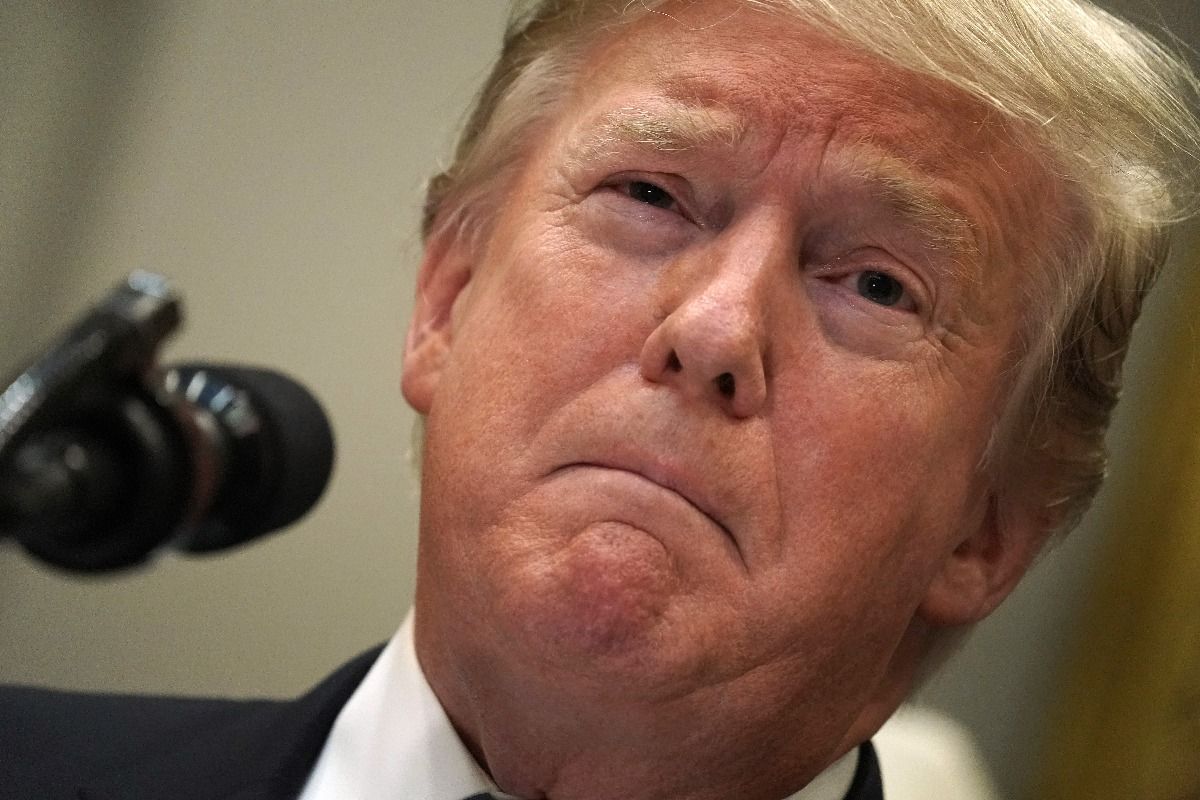Former President Donald Trump reportedly admitted he didn't win the 2020 election during a video interview with a panel of Princeton historians in July 2021. The contents of the interview were recently published in The Atlantic.
In the article, Julian Zelizer, editor of The Presidency of Donald Trump: A First Historical Assessment, confirmed Trump reached out to a group of professional historians to correct the hardening consensus that his presidency was a failure.
Zelizer wrote that Trump "seemed to want the approval of historians, without any understanding of how historians gather evidence or render judgments" but following the panel, the ex-president announced that he would no longer be giving out interviews for books about his time in the White House.
RELATED: What will be most remembered of Trump's presidency?
Zelizer went on to note that "our conversation with the former president underscored common criticisms: that he construed the presidency as a forum to prove his dealmaking prowess; that he sought flattery and believed too much of his own spin; that he dismissed substantive criticism as misinformed, politically motivated, ethically compromised, or otherwise cynical." The former president, Zelizer writes, has a limited historical worldview and measured American politicians "primarily by how they treated him."
Want a daily wrap-up of all the news and commentary Salon has to offer? Subscribe to our morning newsletter, Crash Course.
During the interview, Trump attempted to influence the historical narrative by repeatedly trumpeting his administration's successes. Zelizer writes that Trump refused to acknowledge or engage when presented with criticisms about his presidency. "He did, however, admit to having sometimes retweeted people he shouldn't have, and at one point he said, "when I didn't win the election"—phrasing at odds with his false claim that the 2020 vote was stolen."
During the interview, Trump said of South Korea's Moon Jae-In, China's Xi Jinping and Iran's Imran Khan, "By not winning the election, he was the happiest man – I would say, in order, China was – no, Iran was the happiest."
RELATED: Historians rank Trump near bottom of U.S. presidents, Obama rises into top 10
"He was going to pay $5bn, $5bn a year. But when I didn't win the election, he had to be the happiest – I would rate, probably, South Korea third or fourth happiest," said Mr Trump on pressuring Seoul to increase military spending.
After the interview, Trump said the whole thing was a "total waste of time."
"These writers are often bad people who write whatever comes to their mind or fits their agenda," he said. "It has nothing to do with facts or reality."

Shares